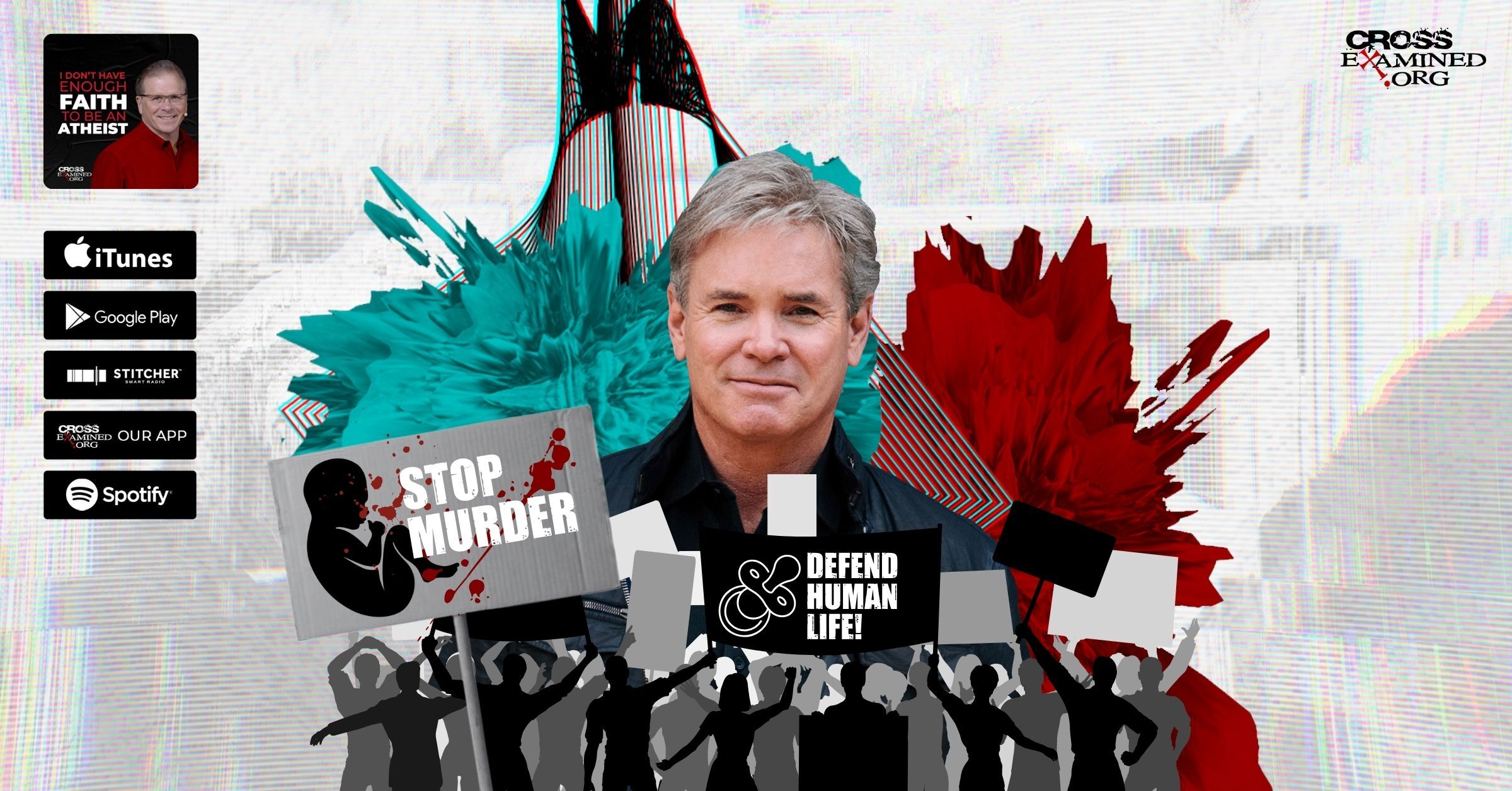Early Church Persecution, and its Evidential Value. Part 1
The argument from Christian persecution was developed most fully by William Paley, in his 1794 book, A View of the Evidences of Christianity.[1] Indeed, Paley devotes the first nine chapters of his book to defending the thesis
“that there is satisfactory evidence that many professing to be original witnesses of the Christian miracles, passed their lives in labours, dangers, and sufferings, voluntarily undergone in attestation of the accounts which they delivered, and solely in consequence of their belief of those accounts; and that they also submitted, from the same motives, to new rules of conduct.”[2]
This proposition, if true, goes a long way towards establishing that the early apostles — that is, those who were purportedly witnesses to Jesus’ resurrection — were sincere in their conviction that they had encountered the raised Christ. Indeed, people are unlikely to voluntarily endure hardship, dangers, and persecutions on account of a claim that they believe to be false. As Paley notes,
Then as to the kind and degree of exertion which was employed, and the mode of life to which these persons submitted, we reasonably suppose it to be like that which we observe in all others who voluntarily become missionaries of a new faith. Frequent, earnest, and laborious preaching, constantly conversing with religious persons upon religion, a sequestration from the common pleasures, engagements, and varieties of life, and an addiction to one serious object, compose the habits of such men. I do not say that this mode of life is without enjoyment, but I say that the enjoyment springs from sincerity. With a consciousness at the bottom of hollowness and falsehood, the fatigue and restraint would become insupportable. I am apt to believe that very few hypocrites engage in these undertakings; or, however, persist in them long. Ordinarily speaking, nothing can overcome the indolence of mankind, the love which is natural to most tempers of cheerful society and cheerful scenes, or the desire, which is common to all, of personal ease and freedom, but conviction.[3]
Of course, a successful demonstration of the sincerity of the apostles is not by itself sufficient to justify belief in the resurrection (though it is a significant step in that direction). If the apostles were sincere in their conviction that they had encountered the risen Christ and were witnesses to other miracles, it remains to be asked how they came to arrive at those beliefs. Having argued for the sincerity of the apostles, one can then proceed to mine details from the gospels & Acts (sources which, as I and others have argued in detail elsewhere, represent the testimony of the alleged witnesses of Jesus alive after his death) in an effort to evaluate whether the set of claims concerning his resurrection are the kind about which one may be plausibly sincerely mistaken. In this article, I will discuss the evidence that the apostles did in fact encounter hardships, dangers and persecutions on account of their Christian convictions. First, I shall survey the evidence for a general context of persecution (what may be called the indirect part of the case). I will then [insert link] [in part 2] proceed to argue that the apostles in particular voluntarily submitted themselves to danger, hardship and persecution on account of their conviction of the gospel’s truth.
The General Context of Persecution
There is abundant evidence of a general context of persecution in the first century, from both secular and Christian sources. There was also a reasonable expectation of persecution right from the very beginning. As William Paley explains,
Our books relate, that Jesus Christ, the founder of the religion, was, in consequence of his undertaking, put to death, as a malefactor, at Jerusalem. This point at least will be granted, because it is no more than what Tacitus has recorded. They then proceed to tell us, that the religion was, notwithstanding, set forth at this same city of Jerusalem, propagated thence throughout Judea, and afterwards preached in other parts of the Roman empire. These points also are fully confirmed by Tacitus, who informs us, that the religion, after a short check, broke out again in the country where it took its rise; that it not only spread throughout Judea, but had reached Rome, and that it had there great multitudes of converts: and all this within thirty years after its commencement. Now these facts afford a strong inference in behalf of the proposition which we maintain. What could the disciples of Christ expect for themselves when they saw their master put to death? Could they hope to escape the dangers in which he had perished? If they had persecuted me, they will also persecute you, was the warning of common sense. With this example before their eyes, they could not be without a full sense of the peril of their future enterprise.[4]
This reasonable expectation accords with reality, as historical records abundantly attest. Cornelius Tacitus (56-120 C.E), a member of the Roman senate and historian of Rome wrote about the first officially sanctioned state persecution of Christians under the emperor Nero. This ensued from a fire that broke out in Rome in 64 C.E. According to Tacitus, there was a circulating rumor among the populace that the conflagrations were the result of an order from Nero himself. Tacitus explains that “all human efforts, all the lavish gifts of the emperor, and the propitiations of the gods, did not banish the sinister belief that the conflagration was the result of an order,” (Annals 15:44). Thus, Nero needed a scapegoat in order to deflect the blame for the fire away from himself. Tacitus continues (Annals 15:44),
Consequently, to get rid of the report, Nero fastened the guilt and inflicted the most exquisite tortures on a class hated for their abominations, called Christians by the populace. Christus, from whom the name had its origin, suffered the extreme penalty during the reign of Tiberius at the hands of one of our procurators, Pontius Pilatus, and a most mischievous superstition, thus checked for the moment, again broke out not only in Judæa, the first source of the evil, but even in Rome, where all things hideous and shameful from every part of the world find their centre and become popular. Accordingly, an arrest was first made of all who pleaded guilty; then, upon their information, an immense multitude was convicted, not so much of the crime of firing the city, as of hatred against mankind. Mockery of every sort was added to their deaths. Covered with the skins of beasts, they were torn by dogs and perished, or were nailed to crosses, or were doomed to the flames and burnt, to serve as a nightly illumination, when daylight had expired.
Nero offered his gardens for the spectacle, and was exhibiting a show in the circus, while he mingled with the people in the dress of a charioteer or stood aloft on a car. Hence, even for criminals who deserved extreme and exemplary punishment, there arose a feeling of compassion; for it was not, as it seemed, for the public good, but to glut one man’s cruelty, that they were being destroyed.[5]
Suetonius (69 – after 122 C.E.), a biographer of the twelve Caesars, likewise writes that Nero “inflicted punishment on the Christians, a sort of people who held a new and impious superstition,” (Life of Nero, 16).[6] Notice that Tacitus indicates that Christians were already hated for their abominations, and were referred to as Christians by the populace — making them an easy scapegoat. William Paley notes,
These things, as has already been observed, took place within thirty-one years after Christ’s death, that is, according to the course of nature, in the lifetime, probably, of some of the apostles, and certainly in the lifetime of those who were converted by the apostles, or who were converted in their time. If then the founder of the religion was put to death in the execution of his design; if the first race of converts to the religion, many of them, suffered the greatest extremities for their profession; it is hardly credible, that those who came between the two, who were companions of the Author of the institution during his life, and the teachers and propagators of the institution after his death, could go about their undertaking with ease and safety.[7]
Confirming Paley’s inference, there are sources, dating prior to the persecution under Nero commencing in 64 C.E., which indicate a widespread persecution of Christians significantly before this time. The apostle Paul wrote a letter to the church in Philippi, a Macedonian city, during his first Roman imprisonment (60-62 C.E.). Therein, he writes, “For it has been granted to you that for the sake of Christ you should not only believe in him but also suffer for his sake, engaged in the same conflict that you saw I had and now hear that I still have,” (Phil 1:29-30). Paul’s letter to the Romans (dating to around 57-59 C.E.) likewise encourages his readers, “we rejoice in our sufferings, knowing that suffering produces endurance, and endurance produces character, and character produces hope,” (Rom 5:3-4) Further, “Who shall separate us from the love of Christ? Shall tribulation, or distress, or persecution, or famine, or nakedness, or danger, or sword? As it is written, ‘For your sake we are being killed all the day long; we are regarded as sheep to be slaughtered,” (Rom 8:35-36). Even prior to this period, Paul wrote a letter to the Christians in Corinth (a Greek city), around 55 or 56 C.E., in which he states,
We are afflicted in every way, but not crushed, perplexed, but not driven to despair, persecuted but not forsaken, struck down, but not destroyed, always carrying in the body the death of Jesus, so that the life of Jesus may also be manifested in our bodies. For we who live are always being given over to death for Jesus’ sake, so that the life of Jesus also may be manifested in our mortal flesh. So death is at work in us, but life in you” (2 Cor 4:8-12).
Even before this time, Paul addressed the Christians in Thessalonica (in Macedonia), in a letter composed around 51 or 52 C.E. — “Therefore we ourselves boast about you in the churches of God for your steadfastness and faith in all your persecutions and in the afflictions that you are enduring,” (2 Thess 1:4).
Outside of the letters of Paul, there are also other early Christian references to first century persecution against Christians. For example, the writer to the Hebrews (an epistle, or perhaps more appropriately a Homily, which is difficult to precisely date but very probably was composed prior to A.D. 70) notes,
But recall the former days when, after you were enlightened, you endured a hard struggle with sufferings, sometimes being publicly exposed to reproach and affliction, and sometimes being partners with those so treated. For you had compassion on those in prison, and you joyfully accepted the plundering of your property, since you know that you yourselves had a better possession and an abiding one (Heb 10:32-34).
The author further encourages these Jewish believers by reminding them of those Old Testament saints,
[W]ho through faith conquered kingdoms, enforced justice, obtained promises, stopped the mouths of lions, quenched the power of fire, escaped the edge of the sword, were made strong out of weakness, became mighty in war, put foreign armies to flight. Women received back their dead by resurrection. Some were tortured, refusing to accept release, so that they might rise again to a better life. Others suffered mocking and flogging, and even chains and imprisonment. They were stoned, they were sawn in two, they were killed with the sword. They went about in skins of sheep and goats, destitute, afflicted, mistreated — of whom the world was not worthy — wandering about in deserts and mountains, and in dens and caves of the earth (Heb 11:33-38).
The book of James likewise encourages persecuted believers,
As an example of suffering and patience, brothers, take the prophets who spoke in the name of the Lord. Behold, we consider those blessed who remained steadfast. You have heard of the steadfastness of Job, and you have seen the purpose of the Lord, how the Lord is compassionate and merciful. The letter of 1 Peter further instructs believers, “do not be surprised at the fiery trial when it comes upon you to test you, as though something strange were happening to you. But rejoice insofar as you share Christ’s sufferings, that you may also rejoice and be glad when his glory is revealed. If you are insulted for the name of Christ, you are blessed, because the Spirit of glory and of God rests upon you (1 Pet 4:12-14).
Thus, we have early Christian letters, addressing readers all around the Mediterranean, exhorting them to bear up in the midst of persecution. This is impossible to explain if there were no such context of early persecution against Christians to speak of. Though the first officially state sanctioned persecution began in 64 C.E., under the emperor Nero, there was a widespread disdain for, and persecution of, Christians long before this time. Paley notes,
What could all these texts mean, if there was nothing in the circumstances of the times which required patience,—which called for the exercise of constancy and resolution? Or will it be pretended, that these exhortations (which, let it be observed, come not from one author, but from many) were put in, merely to induce a belief in after-ages, that the Christians were exposed to dangers which they were not exposed to, or underwent sufferings which they did not undergo? If these books belong to the age to which they lay claim, and in which age, whether genuine or spurious, they certainly did appear, this supposition cannot be maintained for a moment; because I think it impossible to believe, that passages, which must be deemed, not only unintelligible, but false, by the persons into whose hands the books upon their publication were to come, should nevertheless be inserted, for the purpose of producing an effect upon remote generations. In forgeries which do not appear till many ages after that to which they pretend to belong, it is possible that some contrivance of that sort may take place; but in no others can it be attempted.[8]
Paul, of course, also speaks in his letters of his own persecution against the Christians in the early years prior to his conversion (Gal 1:13, 23; 1 Cor 15:9; Phil 3:6).
In addition to the aforementioned epistles, there are also references to the early context of persecution in the Olivet Discourse, recorded by the synoptic gospels. In Matthew 24:9, Jesus indicates that “they will deliver you up to tribulation and put you to death, and you will be hated by all nations for my name’s sake.” Mark 13:9-13 expands further:
But be on your guard. For they will deliver you over to councils, and you will be beaten in synagogues, and you will stand before governors and kings for my sake, to bear witness before them. And the gospel must first be proclaimed to all nations. And when they bring you to trial and deliver you over, do not be anxious beforehand what you are to say, but say whatever is given you in that hour, for it is not you who speak, but the Holy Spirit. And brother will deliver brother over to death, and the father his child, and children will rise against parents and have them put to death. And you will be hated by all for my name’s sake. But the one who endures to the end will be saved.
One does not need to assume the historicity of these sayings of Jesus in order to make the argument that this evinces persecution within the apostles’ own lifetimes. As Paley rightly comments,
I am not entitled to argue from these passages, that Christ actually did foretell these events, and that they did accordingly come to pass; because that would be at once to assume the truth of the religion: but I am entitled to contend, that one side or other of the following disjunction is true; either that the Evangelists have delivered what Christ really spoke, and that the event corresponded with the prediction; or that they put the prediction into Christ’s mouth, because, at the time of writing the history, the event had turned out so to be: for, the only two remaining suppositions appear in the highest degree incredible; which are, either that Christ filled the minds of his followers with fears and apprehensions, without any reason or authority for what he said, and contrary to the truth of the case; or that, although Christ had never foretold any such thing, and the event would have contradicted him if he had, yet historians who lived in the age when the event was known, falsely, as well as officiously, ascribed these words to him.[9]
In other words, if there were no such early persecution to speak of, it is unlikely that the evangelists would have attributed these words to Jesus, regardless of whether the historical Jesus actually uttered those sayings.
This general context of persecution against Christians implies that there would have been a reasonable expectation of danger that would accompany the proclamation of the gospel in the first century. This already suggests that those who boldly proclaimed the resurrection, the Messianic identity of Jesus of Nazareth, and the exclusivity of salvation through Christ, were sincere — they declared those truths despite a hostile context and with full awareness that their activities could well result in imprisonment, suffering, or death.
References:
[1] William Paley, A View of the Evidences of Christianity: Volume 1, Reissue Edition (Cambridge: Cambridge University Press, 2009).
[2] Ibid.
[3] Ibid.
[4] Ibid.
[5] Tacitus, The Annals and The Histories, ed. Mortimer J. Adler, Second Edition, vol. 14, Great Books of the Western World (Chicago; Auckland; Geneva; London; Madrid; Manila; Paris; Rome; Seoul; Sydney; Tokyo; Toronto: Robert P. Gwinn; Encyclopædia Britannica, Inc., 1990), 168.
[6] C. Suetonius Tranquillus, Suetonius: The Lives of the Twelve Caesars; An English Translation, Augmented with the Biographies of Contemporary Statesmen, Orators, Poets, and Other Associates, ed. Alexander Thomson (Medford, MA: Gebbie & Co., 1889).
[7] William Paley, A View of the Evidences of Christianity: Volume 1, Reissue Edition (Cambridge: Cambridge University Press, 2009).
[8] Ibid.
[9] Ibid.
Recommended Resources:
Why We Know the New Testament Writers Told the Truth by Frank Turek (mp4 Download)
The Top Ten Reasons We Know the NT Writers Told the Truth mp3 by Frank Turek
Counter Culture Christian: Is the Bible True? by Frank Turek (Mp3), (Mp4), and (DVD)
The New Testament: Too Embarrassing to Be False by Frank Turek (DVD, Mp3, and Mp4)
Dr. Jonathan McLatchie is a Christian writer, international speaker, and debater. He holds a Bachelor’s degree (with Honors) in forensic biology, a Masters’s (M.Res) degree in evolutionary biology, a second Master’s degree in medical and molecular bioscience, and a Ph.D. in evolutionary biology. Currently, he is an assistant professor of biology at Sattler College in Boston, Massachusetts. Dr. McLatchie is a contributor to various apologetics websites and is the founder of the Apologetics Academy (Apologetics-Academy.org), a ministry that seeks to equip and train Christians to persuasively defend the faith through regular online webinars, as well as assist Christians who are wrestling with doubts. Dr. McLatchie has participated in more than thirty moderated debates around the world with representatives of atheism, Islam, and other alternative worldview perspectives. He has spoken internationally in Europe, North America, and South Africa promoting an intelligent, reflective, and evidence-based Christian faith.
Originally posted at: https://bit.ly/41NinxW










